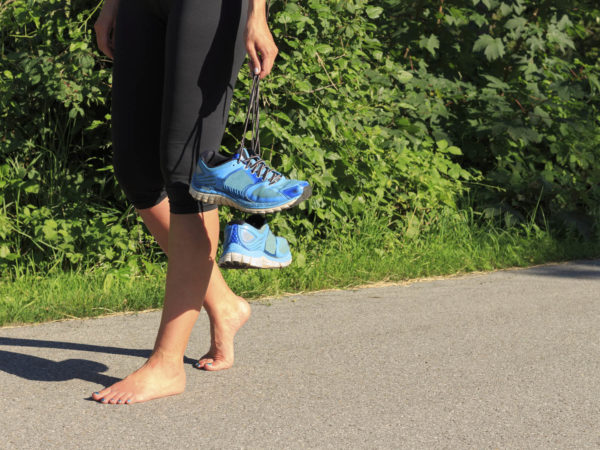Too Much Sweat?
What can I do about cold, sweaty feet? This happens especially in the winter or cold months. (It’s not as bad with sandals because my feet can breathe.) It’s driving me mad! I can’t think properly when my feet are soaked and freezing all the time!
Andrew Weil, M.D. | April 7, 2005

A sweat gland disorder called hyperhidrosis leads to excess perspiration. While the cause is unknown, the problem has been related to a higher than normal reaction of the sweat glands to both changes in temperatures and to physical and emotional stress. Hyperhidrosis can affect the feet, palms, underarms or the whole body. A 2003 survey found that nearly three percent of the American public suffers from excess sweating but that only 38 percent of those affected have sought medical help.
Effective treatment is available. If I were you, I would consult your physician and also try the measures listed below:
- Use absorbent foot powder.
- Rotate your shoes. The pair you wear one day may not dry thoroughly overnight so be sure to switch to a dry pair the next morning.
- Wear moisture-wicking athletic socks. You can get them made of merino wool or a synthetic blend called "polypro."
- Change your socks once or twice a day and dry your feet thoroughly before putting on a clean pair.
- Go barefoot whenever possible – air your feet by slipping off your shoes as often as you can.
- Explore using the mind/body connection to improve the condition. Consult a practitioner of clinical hypnosis, guided imagery, or biofeedback to help you in this work.
If antiperspirants don’t help, your physician may suggest a treatment called "tap water iontophoresis" which involves soaking your feet in an electrolyte solution while a generator supplies a low intensity electrical current. You can get a device to use at home. You’ll need several treatments per week for about three weeks. This method seems to block the activity of sweat glands in the top layer of the skin. Unfortunately, the effects wear off over time so you have to maintain the treatments. If this doesn’t work, your physician may suggest Botox injections, which can also be effective.
Andrew Weil, M.D.









